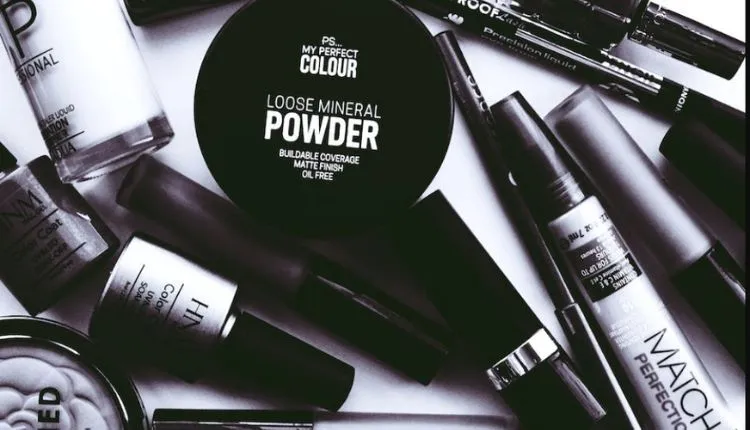Sure, there’s no shortage of things to be worried about when it comes to beauty products. We’ve all heard horror stories: hair dye that bleeds into your scalp, eyeliner that burns your eyes shut. But what happens when a beauty product breaks the law?
While many of these cases are still pending in court, here’s an overview of what we know so far.
Johnson & Johnson Talcum Powder Lawsuit
Talcum powder is a product that you can find in your bathroom cabinet, but it’s more than just an ordinary cosmetic. Talcum powder has been used for centuries to treat eczema and other skin conditions. It’s also been used as an antiseptic in hospitals since the 19th century.
More recently, J&J was ordered by courts to stop advertising its talc-based products as being safe for feminine hygiene use because there may be links between ovarian cancer and regular exposure to talc particles.
According to a report on The Motley Fool, There are currently 40,000 lawsuits pending against Johnson & Johnson. According to the JPMorgan estimate, the company’s liabilities from the lawsuits could reach $8 billion to $10 billion.
J&J also had to file bankruptcy to protect itself from claims. However, the court ruled against the move, saying that the company’s strong financial position prevented the move from being done.
Hair Straightener Cancer Lawsuit
The hair straightener cancer lawsuit refers to legal action against companies that manufacture hair straightening products containing high levels of formaldehyde.
Formaldehyde is a chemical commonly used in hair straightening products to help break the bonds in hair fibers, making it easier to straighten. However, formaldehyde is also a known carcinogen, meaning it has the potential to cause cancer.
Lawsuits against hair straightener manufacturers have been filed by individuals who claim that their exposure to high levels of formaldehyde in hair straightening products has caused cancer or other serious health issues.
The plaintiffs in these lawsuits argue that the manufacturers knew or should have known about the risks associated with formaldehyde and failed to adequately warn consumers about these risks.
Rely Tampon Lawsuit
The Rely Tampon lawsuit refers to a legal action taken against the manufacturer of Rely Tampons, a type of tampon that was popular in the late 1970s and early 1980s.
The lawsuits were filed by women who claimed that the use of Rely Tampons had caused toxic shock syndrome (TSS), a serious and potentially life-threatening illness caused by bacterial toxins in the bloodstream.
According to Document, in the late 1970s, many young women across America became deathly ill with TSS. By the 1980s, the TSS infection rate was 6 in 100,000 people.
The studies showed that synthetic chemical agents in high-absorbency tampons were responsible for the uptick in TSS reports. The Centers for Disease Control reported 91% of TSS cases to be associated with menstruation.
The Rely Tampon lawsuit had a significant impact on the tampon industry, leading to increased regulations and labeling requirements for tampons and other menstrual products.
L’Oreal Foundation Lawsuit
The L’Oreal Foundation lawsuit refers to a legal action taken against L’Oreal, a leading cosmetics company, regarding one of its foundation products. The lawsuit was filed by individuals who claimed that the product caused skin irritation and other adverse reactions.
The plaintiffs in the lawsuit argued that the product was marketed as being safe and suitable for all skin types, but in reality, it caused skin irritation and other adverse reactions in some users. They also claimed that L’Oreal failed to adequately warn consumers about these risks and to conduct proper testing to ensure the product’s safety.
Maybelline Lash Studio Mascara Lawsuit
The Maybelline Lash Studio Mascara lawsuit refers to a legal action taken against Maybelline, a leading cosmetics company, regarding one of its mascara products. The lawsuit was filed by individuals who claimed that the product caused eye irritation, eye infections, and other adverse reactions.
The plaintiffs in the lawsuit argued that the product was marketed as being safe and suitable for use around the eyes, but in reality, it caused eye irritation and other adverse reactions in some users.
Conclusion
The beauty industry is an exciting one, full of innovation and new products. According to Statista, the global cosmetic market saw a 16% growth in 2022 in comparison to its previous year. The revenue of the market was $100.49 billion worldwide. The main product categories of this market are skincare, haircare, oral cosmetics make-up, perfumes, toiletries, and deodorants.
However, with so many different substances being used in cosmetics and personal care products, there are plenty of opportunities for things to go wrong. If you’ve been injured due to a defective product or if someone else has died due to using an unsafe product, there may be legal options available for you.
